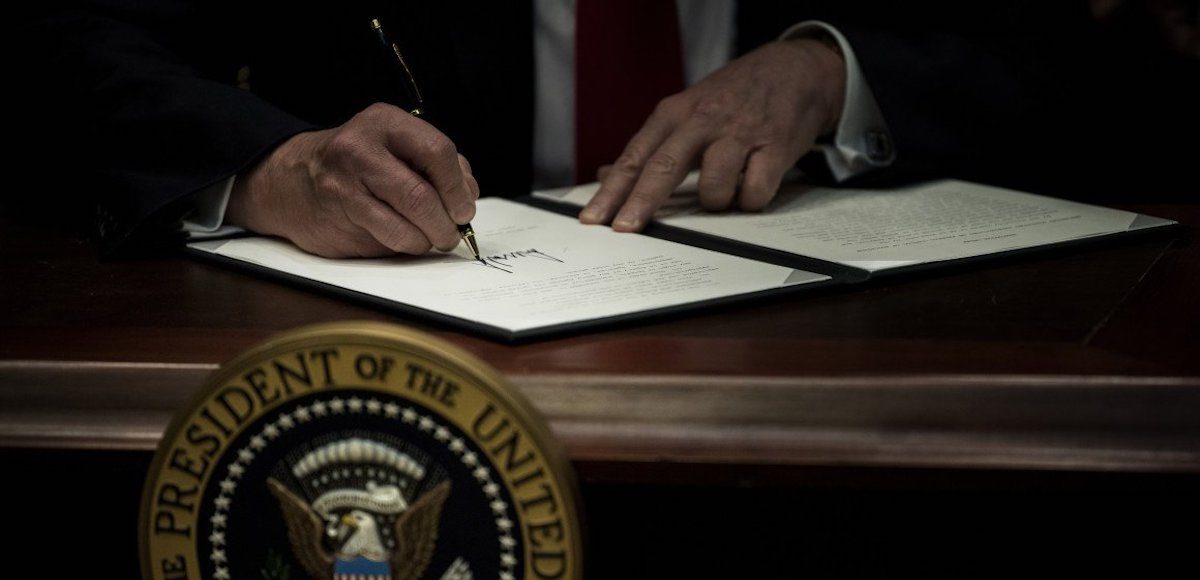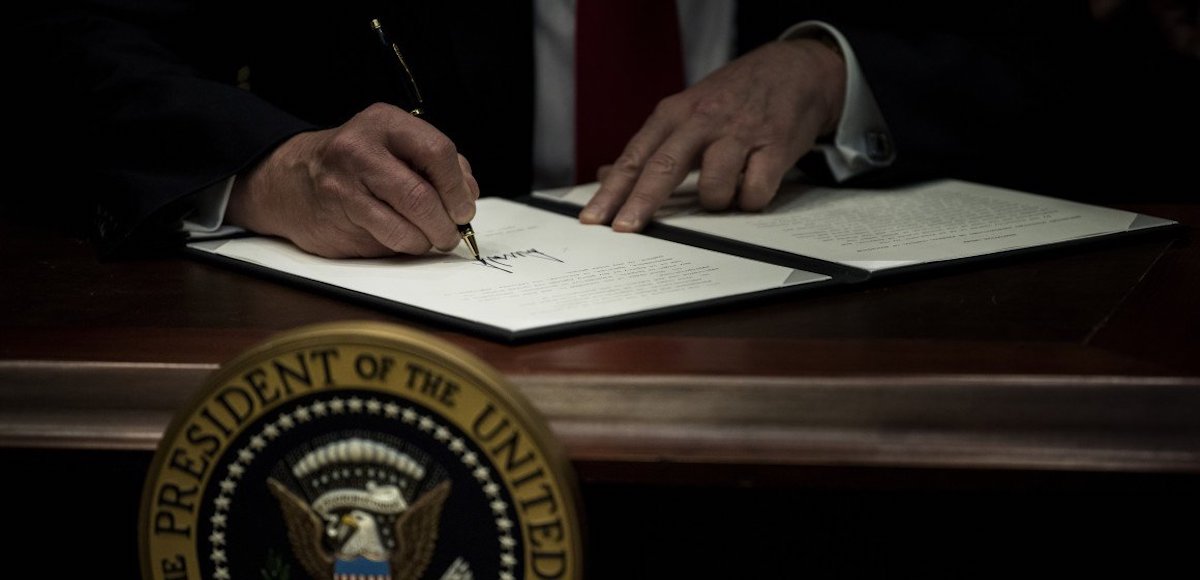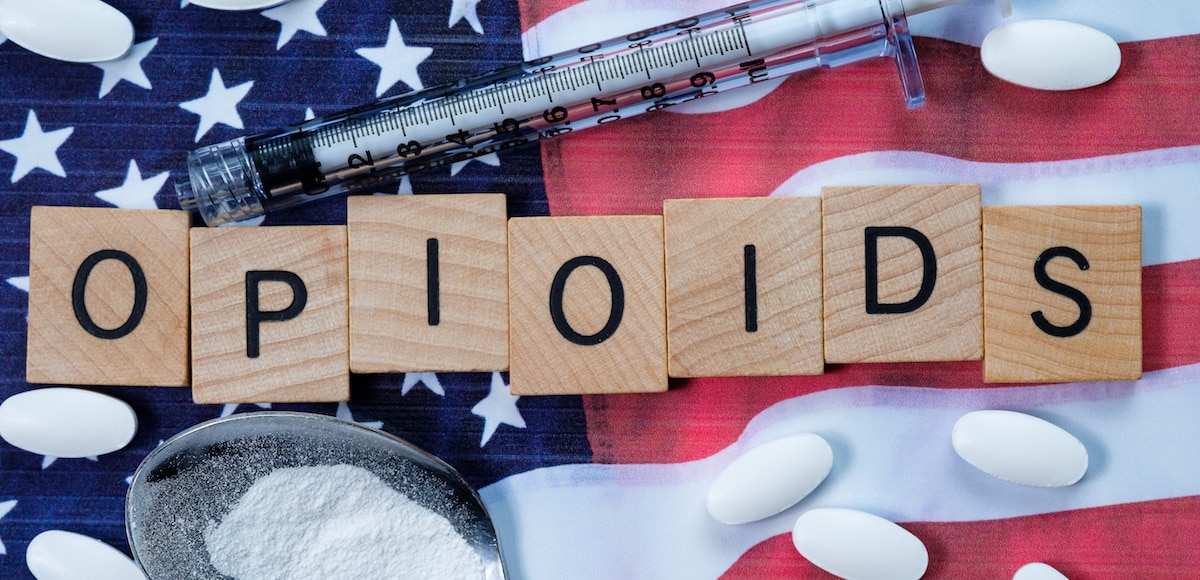
SUPPORT for Patients and Communities Act Latest in Long Line of Actions to Combat Opioid Crisis Under Trump Administration

President Executive Order (Photo: AP)
President Donald Trump on Wednesday signed into law the most significant and sweeping legislation to date to combat the nation’s opioid crisis. The president campaigned on combating the opioid epidemic, which just this year has claimed the lives of almost 47,000 Americans.
As commander-in-chief, he has made the scourge a central focus of his administration.
“From day one of this Administration, President Trump has called upon a whole of government approach to combat our addiction crisis,” said Deputy Director James Carroll of the White House Office of National Drug Control Policy (ONDCP). “That call has been manifested into today’s bill signing.”
The SUPPORT for Patients and Communities Act allows the U.S. Postal Service to scan packages for illicit opioids, increases funding for recovery centers, and expands Medicaid to cover a larger array of treatment options for patients struggling with opioid addiction.
“This historic package makes meaningful reforms to keep illicit drugs out of our communities, better monitor prescribing, prevent addiction and help those suffering with a substance use disorder get the treatment and recovery support they need,” Mr. Carroll added. “It also reauthorizes ONDCP so that we can continue our mission and coordinate across the federal government.”
In total, President Trump has signed into law nearly $5 billion in funding to address the opioid crisis.
“The legislation signed by the president today gives community leaders—the people doing this vital work day in and day out—more resources to help people get clean and stay clean,” House Speaker Paul Ryan, R-Wis., said in a statement. “It helps stem the flow of opioids into communities by encouraging non-opioid prescriptions and helping law enforcement crack down on synthetic drugs like fentanyl.”
“Good news: @POTUS just signed the ‘SUPPORT for Patients and Communities Act,’ a landmark #opioids bill that includes new programs to keep families safe,” Senate Majority Leader Mitch McConnell, R-Kty., said on Twitter. “The bill takes steps to stop illegal drugs and synthetic opioids from crossing the border.”
Good news: @POTUS just signed the “SUPPORT for Patients and Communities Act,” a landmark #opioids bill that includes new programs to keep families safe. The bill takes steps to stop illegal drugs and synthetic opioids from crossing the border.
— Leader McConnell (@senatemajldr) October 24, 2018
“It provides states the tools they need to improve access to treatment and encourages educational programs in schools to help prevent addiction,” he tweeted in a follow up. “It invests in the development of non-addictive painkillers and in research of mental-health factors that may contribute to addiction.”
It provides states the tools they need to improve access to treatment and encourages educational programs in schools to help prevent addiction. It invests in the development of non-addictive painkillers and in research of mental-health factors that may contribute to addiction.
— Leader McConnell (@senatemajldr) October 24, 2018
Every day, more than 115 Americans die from opioid overdoses. That’s more than one person every 15 minutes. The National Institute of Drug Abuse finds nearly 80% of heroin users started with prescription opioids.
From 1999 to 2016, overdose deaths as a result of heroin use increased 7 times, and deaths from synthetic opioids such as fentanyl has risen by nearly 21 times.

Scrabble-like text depicting opioids on an American flag to underscore the opioid epidemic in the United States. (Photo: AdobeStock)
The enactment of the SUPPORT for Patients and Communities Act is the latest in a long and growing line of actions taken by the Trump Administration to address the opioid epidemic.
In November 2017, the president donated his third-quarter presidential salary to anti-opioid initiatives at the Department of Health and Human Services (HHS).
In April 2017, the Trump Administration announced it would provide grants to all 50 states to combat opioid addiction. The funding was the first of two rounds to be allocated under the 21st Century Cures Act.
In August 2017, President Trump officially declared the opioid crisis a national emergency. The Commission on Combating Drug Addiction and the Opioid Crisis said that executive action would make the opioid crisis a top priority and allow the Cabinet to take “bold steps” against drug abuse.
In March 2018, the White House unveiled the Initiative to Stop Opioids Abuse and Reduce Drug Supply and Demand. The three-pronged strategy targets the factors the Commission and others identified as fueling the opioid crisis, including increased prosecution of those fueling the crisis.
The Department of Justice (DOJ) cracked down on fraudulent opioid prescriptions and the doctors who prescribe them. In June 2018, the DOJ announced the “largest health care fraud enforcement action in DOJ history.”
The legislation signed into law Wednesday will have real impact in states most affected by the opioid crisis — which voted for Donald Trump — such as Ohio, West Virginia, Pennsylvania, and Michigan. As of 2016, West Virginia ranked number one in opioid overdoses with a death rate of 43.4 per 100,000 residents.







